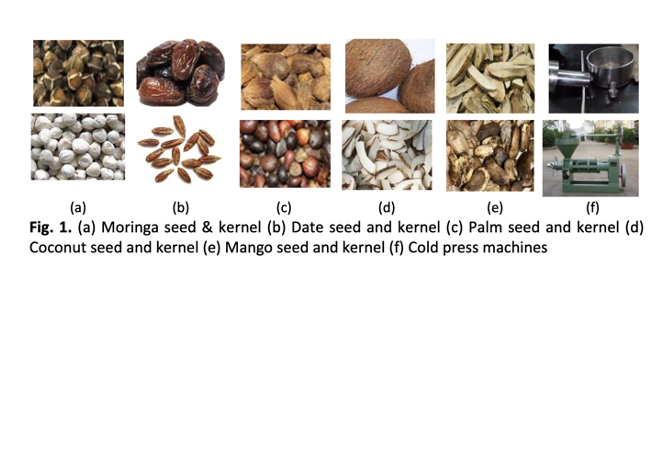Thermal Characterization of Biofluids for Heat Transfer Fluid in Thermal Transport Technologies
DOI:
https://doi.org/10.37934/arfmts.89.1.134141Keywords:
Thermophysical properties, thermal degradation, enthalpy, biofluids, heat transfer fluidAbstract
Thermal fluids modulate temperature conditions around the thermal collector systems indirectly by circulating the heat transfer fluid throughout the heat exchanger, thereby simulating cooling and heating with thermal condition. This study investigates biofluid from Moringa oleifera kernel, Date kernel, Palm kernel, Coconut kernel and Mango kernel as base fluids for heat transfer fluid application in solar thermal technology. The methodology employed in this study is experimental and the analyzed biofluids results was compared with conventional heat transfer base fluids. Thermal constant analyzer (TPS-2005S), CT-72 Transparent viscometer and Eagle eye SG-500 portable digital hydrometer were used to measure the thermophysical properties, viscosity, and density, of the biofluids respectfully. From the results, the biofluids showed comparative thermophysical properties to conventional base fluids. Moringa oleifera kernel oil and Mango kernel oil has the best quality among the biofluids with thermal conductivity, specific heat, viscosity, and density value was 0.1698Wm/k, 1984.01J/kg.K, 37.12mm2/s, 874.23kg/m3, and 0.2642Wm/k, 763.18J/kg.K, 45.27mm2/s, 914.22kg/m3, respectively. The biofluids was thermally stable after exposure to several heating cycles and heating temperature as no significant degradation was observed in there thermophysical properties. However, there are needs for further experimental studies on clogging and possibility of enhancement of biofluids with organic nanoadditives.
Downloads

































